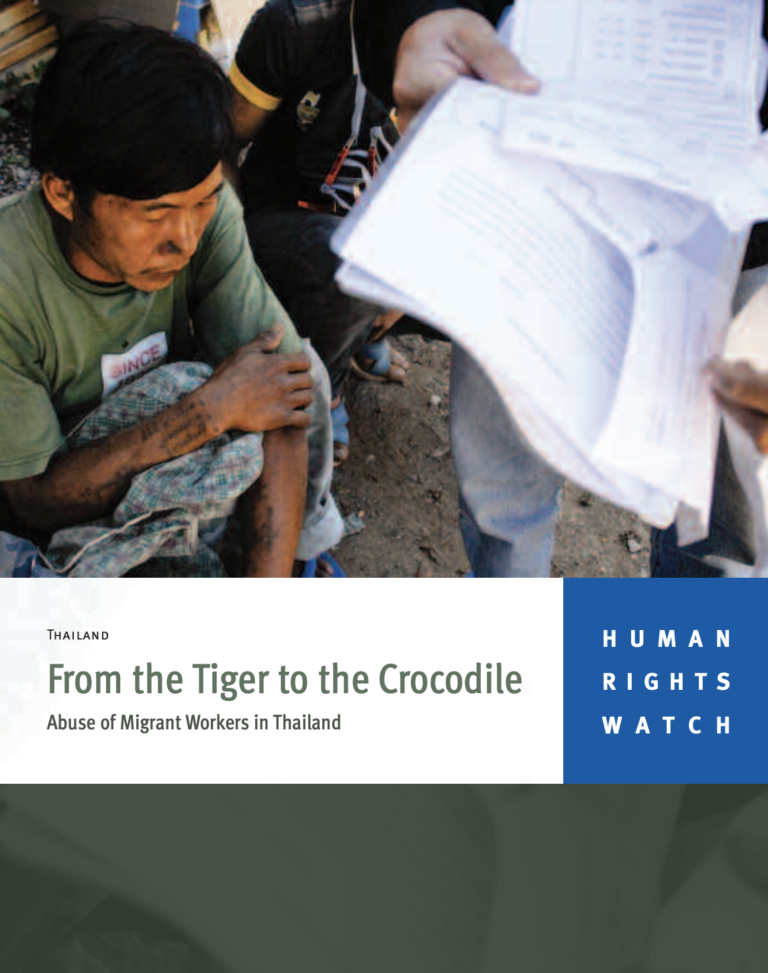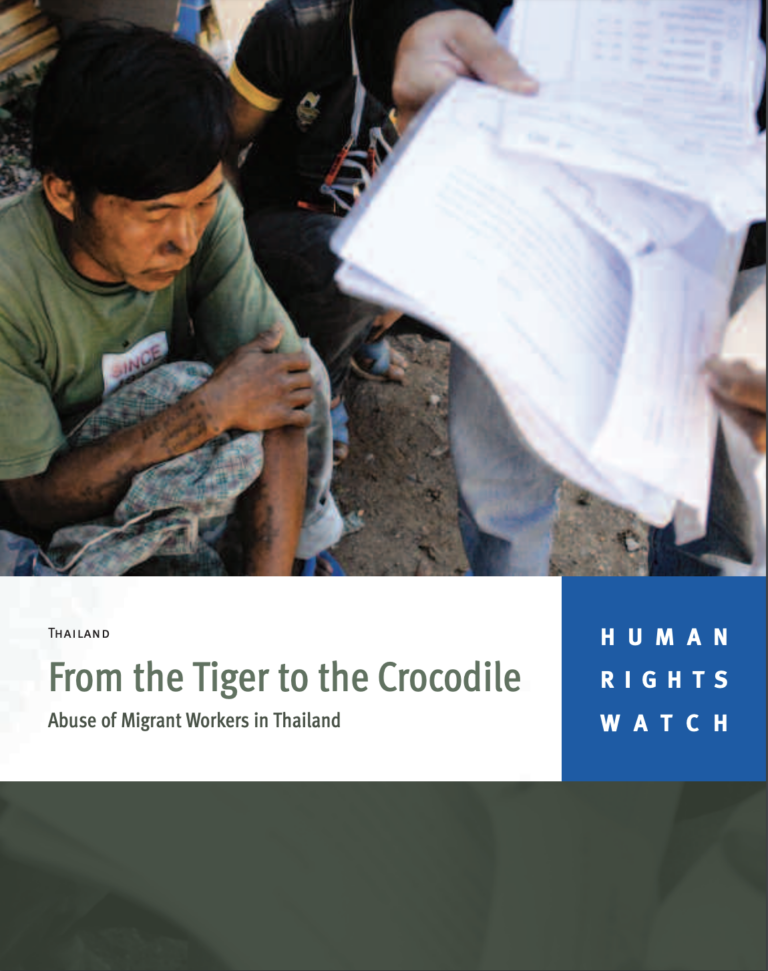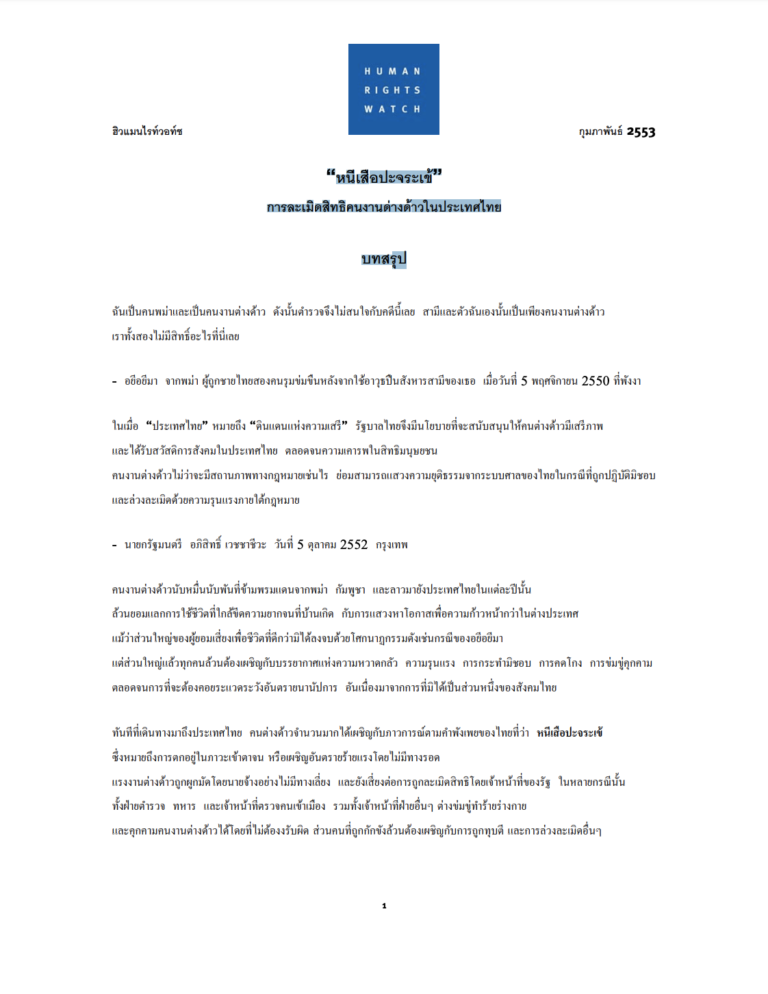The thousands of migrant workers from Burma, Cambodia, and Laos who cross the border into Thailand each year trade near-certain poverty at home for the possibility of relative prosperity abroad. While most of these bids for a better life do not end tragically, almost all play out in an atmosphere circumscribed by fear, violence, abuse, corruption, intimidation, and an acute awareness of the many dangers posed by not belonging to Thai society.
From the moment they arrive in Thailand, many migrants face an existence straight out of a Thai proverb– escaping from the tiger, but then meeting the crocodile– that is commonly used to describe fleeing from one difficult or deadly situation into another that is equally bad, or sometimes worse. Migrant workers are effectively bonded to their employers and at risk of rights violations from government authorities. In many cases, police, military, and immigration officers, and other government officials threaten, physically harm, and extort migrant workers with impunity. Those detained face beatings and other abuses. And whether documented or undocumented, migrants in Thailand are especially vulnerable to abusive employers and common crime, which the Thai authorities are very reluctant to investigate and sometimes are complicit in.
This report by Human Rights Watch found that government sanctioned discrimination and denial of status to migrants create the conditions for flourishing corruption and extortion by local police and other officials which remain all too easily hidden from national authorities. Neither employers nor their migrant workers benefit from a situation in which corrupt officials have greater leeway to extort money in exchange for ignoring undocumented workers. But decisions on migration policies remain strongly influenced by national security agencies and their focus on maintaining structures and rules that permit close and continuous control of migrants, and effectively discourage migrants’ rights to freedom of assembly, association, expression, and movement. How the Thai government resolves the relationship between migrants’ human rights and security concerns will determine the course of its policies.
Apart from the full report in English, Human Rights Watch has also provided a shorter summary featuring key recommendations, available both in English and Thai (see below).



